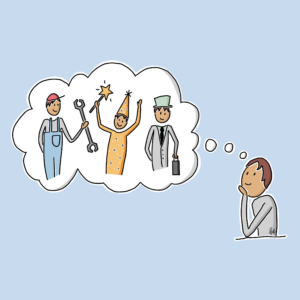

When I say this to the 200 or so managers and researchers I teach every year, they wince. They’ve spent years working with what can be objectively proven, measured and seen when you perform the right experiments.
So what does it mean when I say that emotions are data?
It means that for the sake of our bodies and minds, we should listen if our emotions are saying either the same or something different than our rational brain. Than our thoughts. Than our assumptions. Than our ambitions.
For example, in research, I have encountered many examples of unhealthy work environments. There are people with chronic stress and people who score incredibly low on professional and personal self-esteem – often because they haven’t used their emotions as a gauge.
When we defy our emotions and the fact that our body and heart are screaming that it’s a bad idea, we get sick. We teach ourselves that we’re not good enough and that we’re wrong, and the more we do this, the lower our self-esteem becomes and the more we put up with unacceptable behaviour from colleagues and managers.
So from a cold business point of view, learning to use our emotions to guide us is a great idea – along with all the other forms of input we have at our disposal.
Unfortunately, we’re often unpractised at decoding the signals we get from our emotions, so here are 5 ways you can practice:
- Listen to your body’s little signals
Have you noticed the tension in your shoulders when the pressure increases? Or maybe those little uneasy feelings in your stomach when something doesn’t feel quite right? Your body gives you data – listen to it as valuable information. - Do body scans daily
Close your eyes, take a deep breath and move your attention from head to toe. Where does it feel tight? Where does it feel light? This little ritual can help you understand how your emotions affect your body – and give you insight into what’s really going on. - Move to feel what’s going on
Do you have a lot on your mind? Get moving. Go for a walk, stretch your body or do some yoga exercises. It can release blockages and bring clarity. - Breathe – for real
The next time you feel frustrated or nervous, stop and take some conscious, deep breaths. It may seem simple, but it will help you get grounded and tune into what your body is trying to tell you. You can regulate emotions through breathing once you’ve practised. - Combine reflection and body awareness
At the end of the day, reflect: Where did you feel tense? Where were you relaxed? Combine this body awareness with the events of the day. You’ll get a better understanding of how your body and mind work together to navigate the challenges of the day.
So, yes, emotions are data – and data should not be ignored.
Written by: Mette Hvied Lauesen


